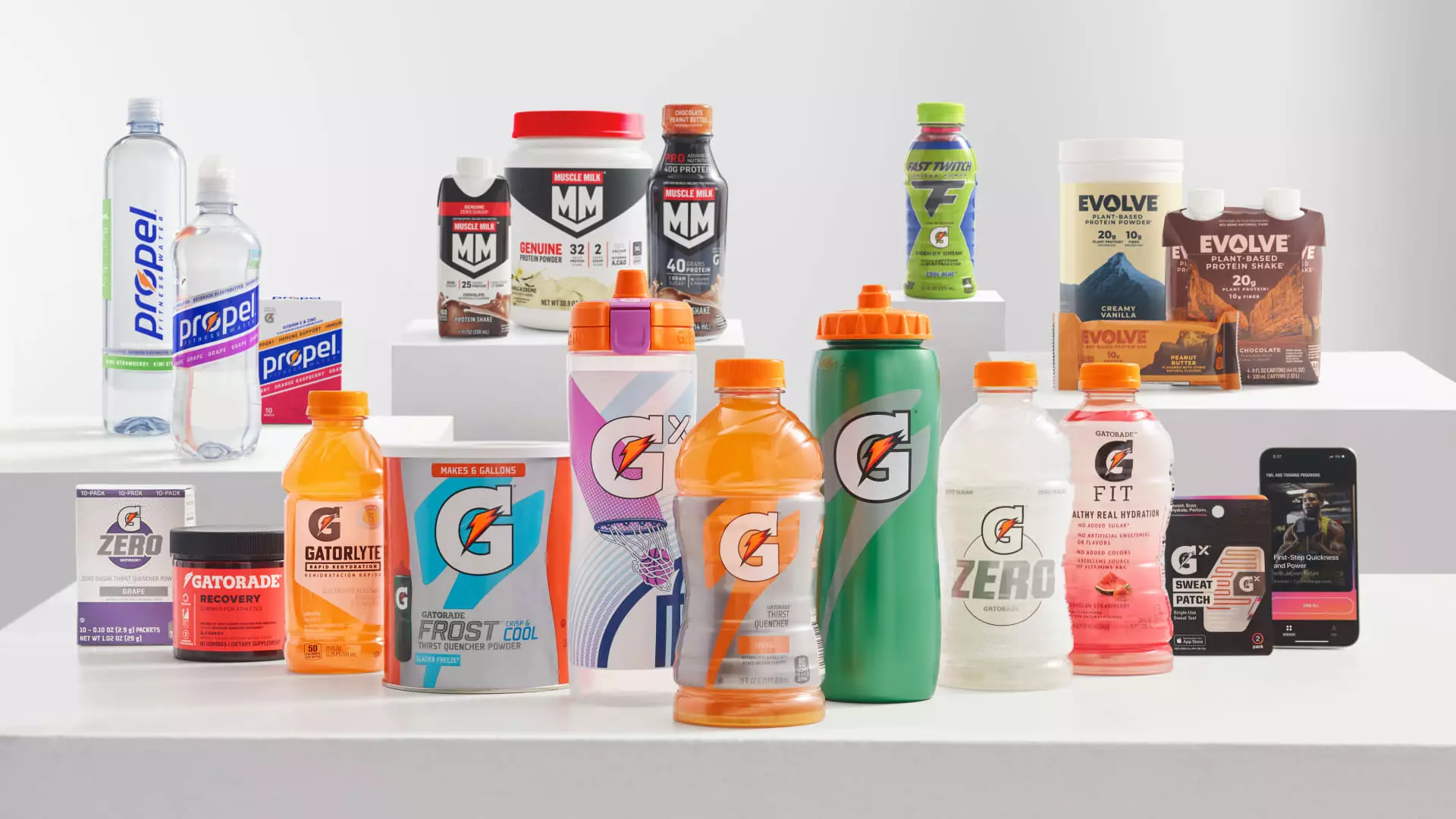As Gatorade gears up to celebrate its 60th anniversary, the iconic sports drink brand continues to make waves by diversifying into new product categories such as unflavored water and energy drink mixes. Since its establishment in 1965, Gatorade has maintained its position as the leading sports drink, commanding a significant 63.5% share of the U.S. sports drink market in 2023 based on data from Euromonitor International. While PepsiCo’s rival Coca-Cola follows closely with its Powerade and Bodyarmor brands, they collectively only hold about a quarter of the market share. PepsiCo restructured its brand portfolio recently to incorporate fitness-related brands like Propel and Muscle Milk under the Gatorade umbrella, showcasing a strategic move to consolidate its offerings.
Despite its market dominance, Gatorade faces intensifying competition as new entrants look to capture a slice of the industry. Companies like Unilever and Nestle Health Science have made strategic acquisitions of drink mix and hydration tablet companies, respectively, to challenge Gatorade’s market share. Coca-Cola’s purchase of Bodyarmor presents another contender with the ability to position its sports drinks at premium prices, appealing to health-conscious consumers. The shift in consumer preferences towards healthier alternatives and functional beverages has prompted Gatorade to rethink its marketing strategies and product innovations to stay ahead of the curve.
Even smaller brands, including influencer-branded products like Logan Paul’s Prime Energy, have managed to chip away at Gatorade’s market share, prompting the company to address shifting consumer demands. Gatorade President Mike Del Pozzo acknowledges the changing landscape where the lines between hydration and wellness have become blurred. Consumers now seek low-sugar options, functional beverages with health benefits, and alkaline water. To meet these evolving preferences, Gatorade has introduced new products such as Gatorade Zero Sugar, immune support tablets, Gatorlyte (resembling Pedialyte), and a caffeinated variant called Fast Twitch. The brand’s foray into unflavored alkaline water signifies its commitment to catering to a broader spectrum of consumers seeking hydration solutions beyond traditional sports drinks.
Del Pozzo emphasizes Gatorade’s ability to adapt and innovate by unveiling products like Gatorade Water, which contains a fifth of the electrolytes present in its classic counterpart. The brand’s diversification efforts are paying off, with positive gains across various hydration categories. Propel, a sub-brand of Gatorade, is on track to surpass $1 billion in sales for the first time, highlighting the brand’s success in meeting consumer demands. Gatorade’s legacy and strong brand equity have positioned it as a frontrunner in the sports drink market, enabling it to explore new avenues and redefine industry norms.
As the sports drink landscape continues to evolve, Gatorade remains steadfast in its commitment to delivering innovative products and engaging marketing campaigns that resonate with consumers. The brand’s enduring legacy and consumer loyalty serve as pillars of strength amidst mounting competition. By embracing consumer trends and leveraging its market expertise, Gatorade is poised to maintain its leadership position and drive growth across emerging categories. Despite the challenges posed by competitors, Gatorade’s ability to adapt and reinvent itself underscores its resilience and determination to remain at the forefront of the sports drink industry.


Leave a Reply